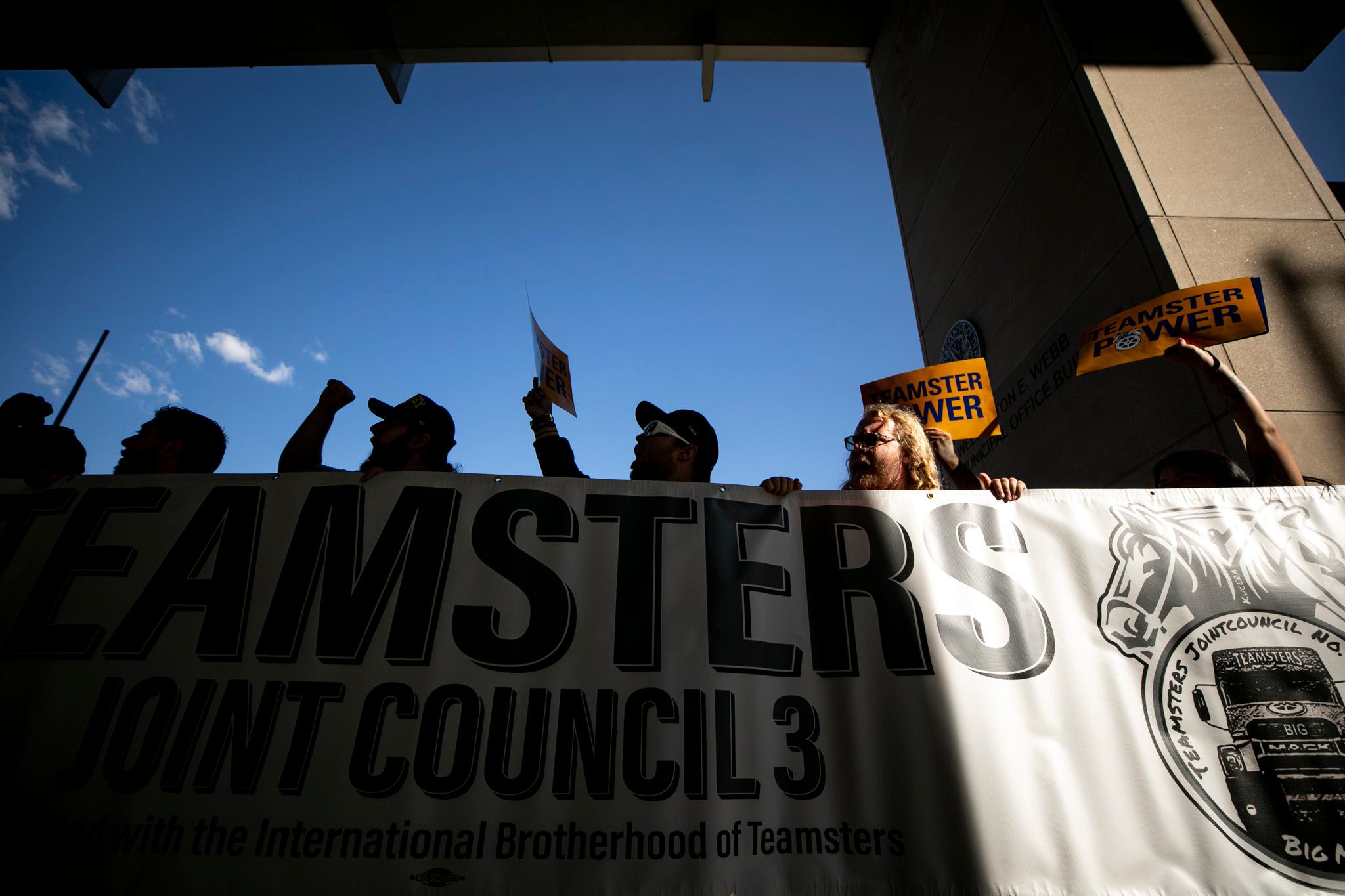Eleven Denver City Council members wrote a letter opposing changes to the city’s layoff rules, criticizing them as poorly timed, rushed and destructive to city workers’ morale.
The council members also said the rule changes lacked transparency, undermined the core purpose of career service rules, arbitrarily weighed seniority, eroded Denver’s commitment to public servants and were being rushed through ahead of city workers receiving collective bargaining rights.
The Denver Auditor, dozens of city workers and community members have voiced their opposition to the changes, while Mayor Mike Johnston and some city workers have voiced their support.
Office of Human Resources spokesperson Theresa Marchetta was not able to provide a statement on City Council's letter by the time this story published.
The new rules would reduce seniority protections and give additional weight to performance history, skills and abilities, creating a “merit-based” system Johnston hopes will allow Denver to continue delivering “world-class services” with a smaller staff.
“This change is needed to bring the rule into alignment with a merit-based system and to ensure there is no interruption in service delivery with a reduced workforce,” Marchetta wrote in an email earlier this month. “Denver residents trust the city to have the best people doing the jobs they depend on and with fewer people to do the work, that will be especially critical.”
The rule changes will be voted on just one month before likely sweeping layoffs may go into effect to help make up Johnston’s $250 million budget hole.
“As we’ve seen time and again during moments of crisis, the City of Denver’s greatest asset is its workforce, dedicated public servants who provide critical services to our residents,” the council members wrote. “The proposed changes to Rule 14 would significantly undermine trust in the city as an employer, reduce transparency in personnel decisions, and leave employees more vulnerable to discrimination, favoritism, and retaliation.”
The letter was sent at 4:53 p.m. to the five mayoral appointees on the Career Service Board — the independent group that oversees the Office of Human Resources and sets the rules for Denver city workers.
Council President Amanda Sandoval, Council Pro Tem Diana Romero Campbell and councilmembers Kevin Flynn, Jamie Torres, Paul Kashmann, Flor Alvidrez, Shontel Lewis, Chris Hinds, Stacie Gilmore, Serena Gonzalez-Gutierrez and Sarah Parady signed the letter. Councilmembers Darrell Watson and Amanda Sawyer were out of the office on Monday.
Transparency and purpose
The council members argued the board has seen neither data nor analysis that would justify the layoff rule changes.
“Major policy shifts especially those affecting job security for thousands of city workers must be
grounded in evidence and stakeholder engagement,” the council members wrote. “Without clarity on what problem the rule change is meant to solve, and what data supports it, this process lacks the transparency city employees, and the public deserve.”
The purpose of Career Service Rules is to provide objective, consistent and equitable criteria ahead of layoffs, the council members wrote.
“The proposed revision strips away those protections and replaces them with vague, subjective considerations that vary by department and management discretion,” council members wrote. “This change would create confusion, undermine employee morale, and open the door to inequitable treatment and legal risk.”
Seniority or merit?
At the last Career Service Board meeting, members of the board requested that the proposed rules include more specifics about how different criteria were weighted.
The Office of Human Resources solution was to weigh performance history, skills and abilities at 10 to 35 percent apiece and length of service at 20 percent.
As the council sees it, the current seniority-based system provides job stability for employees who have served through freezes, furloughs, pandemics and changes in leadership.
“The arbitrary weighting appears to significantly devalue length of service and undermines long-standing principles of fairness in public employment,” the council members wrote.
“Removing these protections sends a harmful message that loyalty and institutional knowledge are no longer valued,” the letter continues.
Eliminating seniority protections would disproportionately affect older workers, making it harder for them to find new jobs in a market that is already biased against older job hunters, council members wrote.
Timing and intent
City workers will have the right to collective bargaining starting in January 2026. It was a move Denver voters approved in November 2024.
“The appearance of pushing through a major rule change just before union protections take effect damages trust and undermines the intent of the voters,” council members wrote. “Additionally, the timeline does not allow for thorough consideration of employee feedback, especially when fear of retaliation may prevent many from speaking candidly.”
Just because collective bargaining can begin in 2026 does not mean that workers will have a contract. Teamsters Local 455, one of the unions organizing city workers, notes contracts would not go into effect until 2027.
Maintaining city worker trust and morale matters, the council members wrote.
Denver workers unions will protest outside the Wellington Webb Municipal Building ahead of the Career Service Board meeting.
The five members will weigh the largely critical comments from more than 100 written letters, dozens of speakers, Auditor Tim O’Brien and, now, the vast majority of city council.
Meanwhile, Johnston has consistently supported the changes.












